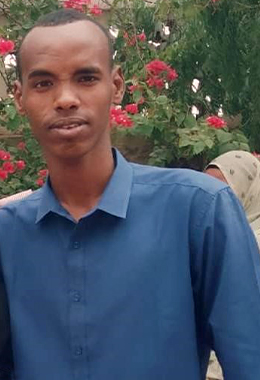For Job Skills Training, Check Your WhatsApp

In the middle of the COVID-19 crisis, Abdirahman Houssein Guelleh found the help he needed through a messaging app.
Guelleh, a 22 year-old living in Djibouti, had recently completed workforce readiness training with EDC’s USAID-funded Djiboutian Workforce Development Program (WFD). But before he applied for jobs, he needed to craft his own résumé—something he had never done before.
Abdirahman.jpg

So Guelleh joined a WhatsApp group focused on job search skills and facilitated by WFD trainers. During weekly discussions, he learned about best practices for résumé writing and how to interview for a new job. He also uploaded his résumé for trainers and other youth to review.
The assistance helped Guelleh revise his résumé so that it would be more effective. Guelleh soon landed an internship as a cashier at a local credit union—the first step toward his career goal of becoming an accountant.
Prior to the pandemic, youth participating in WFD learned to be productive employees and entrepreneurs through trainings that emphasized communication, problem-solving, and financial literacy—a critical need in a country where an estimated 60 percent of youth are out of work. WFD also collaborated with local employers to offer internships and on-the-job experiences for youth.
But with face-to-face activities impossible because of COVID-19 and economic restrictions, WFD had to shift some of its ongoing support to a virtual setting. At the end of March, the program launched two new WhatsApp group discussions for participants: one that focused on job search skills, such as résumé writing and interviewing, as well as one centered on skills for staying healthy and productive during the health emergency.
EDC’s Laura Dillon-Binkley, chief of party for WFD, says that the decision to turn to WhatsApp in the middle of a pandemic was a practical one.
“We figured that youth would have more free time during the lockdown, and they could use that time to improve their employment prospects long-term,” Dillon-Binkley explains.
For the first three months of the lockdown, the discussions were well-attended. An average of nearly 50 youth joined 29 different job-based WhatsApp groups daily, and 25 youth worked with the project’s job placement specialist to improve their résumés.
Like Guelleh, Halima Ali Abdallah posted her résumé for editing and critique, and she eventually landed an internship at Hanawi, a travel and logistics service. For her, having a job means having responsibility, which, in her own words, will allow her to “put [my] skills into practice and to gain work experience in the best possible way.”
Dillon-Binkley says that while promoting youth employment in the middle of a health emergency has been challenging, the transition to WhatsApp-based conversations has been a positive experience.
“Ultimately, we are seeking to make youth more employable and for them to actually find employment,” Dillon-Binkley says. “The economic impacts of COVID are still unclear, but it is encouraging to hear that these tools are making a difference.”